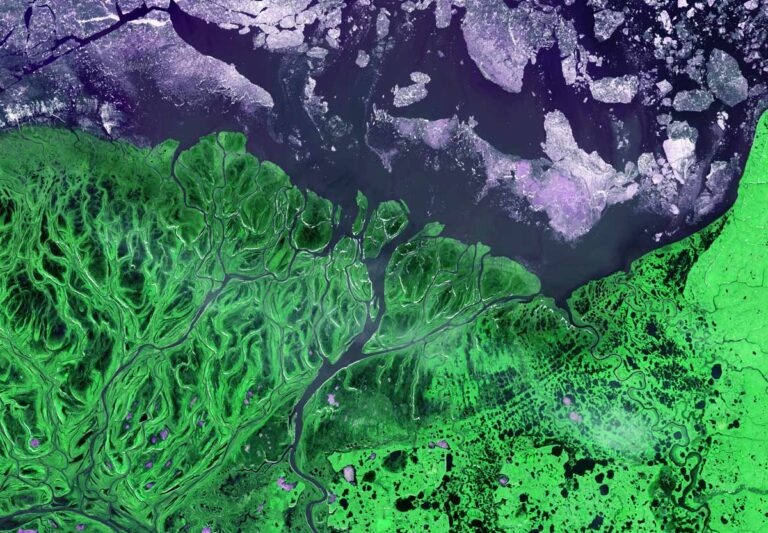15 must watch documentaries for Earth Day 2021
Today, Thursday 22 April, is also known as Earth Day 2021—a day to take action, learn more about the state of our planet, and read listicles on five ways to help save it. While there’s nothing wrong with trying to have an impact in the fight to protect our environment—on the contrary, we’re the first to delve into topics such as climate fear and low carbon travelling, among many others—we also understand that sometimes, the best way to get involved is to watch a poignant and eye-opening documentary. That’s why, to celebrate this year’s Earth Day, we listed 15 must-watch documentaries on nature and climate change based on the top fan ratings on IMDb and Rotten Tomatoes.
1. David Attenborough: A Life On Our Planet (2020)
If you didn’t expect this little gem to rank first, then I don’t know what to tell you. David Attenborough: A Life On Our Planet is the best nature documentary according to IMDb and Rotten Tomatoes fans, with an impressive average rating of 9.3 out of a possible 10. Known for voicing environmental issues throughout the decades, the British natural historian Sir David Attenborough shares his concerns about humanity’s harmful impacts on nature and his hopes for the future of our planet. Available on Netflix.
2. Our Planet (2019) and Africa (2013)
Also narrated by broadcasting veteran Sir David Attenborough, Netflix’s first nature documentary series Our Planet and Africa come in joint second place with an average rating of 9.2 out of 10. Both series focus on wildlife and habitats, with Our Planet also revealing the impacts of climate change in species and ecosystems.
3. Kiss the Ground (2020)
Kiss the Ground claims third place with an average rating of 9.1 out of 10. Narrated by Woody Harrelson and featuring celebrities such as Gisele Bündchen, Tom Brady and Patricia Arquette, the film turns the spotlight on regenerative agriculture and the potential benefits of this alternative farming on our fight against climate change.
4. Blue Planet II (2017)
A follow-up to the 2001 award-winning show The Blue Planet, this natural history series sees Sir David Attenborough (yes, again) return as narrator and host. A breathtaking exploration of the world’s vast oceans, its hour-long episodes capture animals and other living organisms in their natural habitat—presenting viewers with a fascinating insight into what life is like underwater. From tropical seas to the harsh conditions of the Arctic, the makers of Blue Planet II use modern filming equipment and techniques to shine a light on areas of the planet that humans have never seen before.
5. My Octopus Teacher (2020)
“A distinctive and memorable tale of how a filmmaker formed an unusual friendship with an octopus that taught him more about life than he expected. It’s a movie that’s unabashedly sentimental but also thoroughly entertaining and educational,” reads a Rotten Tomatoes review.
6. Virunga (2014)
This documentary film directed by Orlando von Einsiedel and produced by Leonardo DiCaprio is not for the faint of heart. Expect some crying, like a lot of it. Virunga tells the story of four characters fighting to protect Virunga National Park in the Democratic Republic of Congo, home to the world’s last mountain gorillas, from war, poaching, and the threat of oil exploration. Truly heartbreaking.
7. Seaspiracy (2021)
As soon as this Netflix documentary about the environmental impact of fishing directed by and starring British filmmaker Ali Tabrizi premiered on the streaming platform in March, it garnered immediate attention in several countries. If you enjoyed the award-winning 2014 film Cowspiracy, then you’ll want to watch Seaspiracy.
8. Chasing Coral (2017)
Coral reefs around the world are vanishing at an unprecedented rate. Divers, photographers and scientists set out on an ocean adventure to discover why the reefs are disappearing and to reveal the underwater mystery to the world. You get the idea, that’s a classic.
9. Racing Extinction (2015)
Racing Extinction is a documentary about the ongoing Anthropogenic mass extinction of species and the efforts from scientists, activists and journalists to document it by Oscar-winning director Louie Psihoyos, who also directed the documentary The Cove (2009). Don’t freak out, but those scientists believe we have entered the sixth major extinction event in Earth’s history.
10. Mission Blue (2014)
This one follows Doctor Sylvia Earle on her quest trying to protect the ocean from threats as pollution, overfishing and climate change.
11. A Plastic Ocean (2016)
When he discovers the world’s oceans brimming with plastic waste, a documentary filmmaker investigates the pollution’s environmental impacts.
12. Before the Flood (2016)
Leonardo DiCaprio meets with scientists, activists and world leaders to discuss the dangers of climate change and its possible solutions. Martin Scorsese is also an executive producer.
13. The Ivory Game (2016)
Ivory remains a prized status symbol for middle-class Chinese, and poachers in pursuit of white gold are slaughtering African elephants in record numbers. This documentary’s filmmakers went undercover for 16 months, infiltrating and documenting the deep-rooted corruption at the heart of the global ivory trafficking crisis.
14. There’s Something In The Water (2019)
Directed by Elliot Page and Ian Daniel, There’s Something In The Water comes towards the bottom of the list with an average rating of 7.45 out of 10. The Canadian documentary sheds light on the little known issue of environmental racism suffered by the black Canadian and First Nations communities in Nova Scotia (Canada). Still a must watch!
15. RiverBlue (2017)
Last but no less important is the documentary RiverBlue in 15th place with an average rating of 6.45 out of 10. The film explores the paddler and conservationist Mark Angelo’s river journey around the world that uncovered the pollution impacts that the global fashion industry has on our planet.






